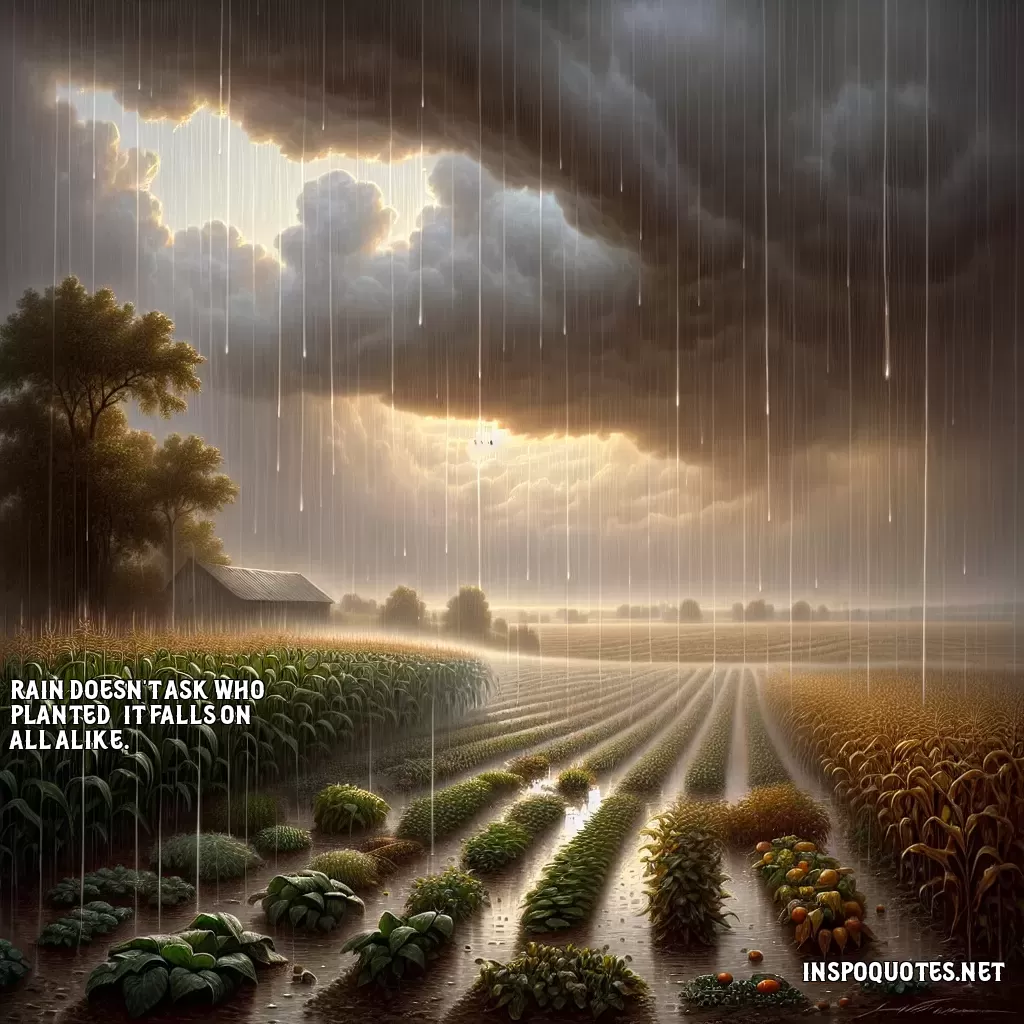
Rain doesn't ask who planted it falls on all alike.
Author: Bertolt Brecht
👁️ 14 views
The quote "Rain doesn't ask who planted; it falls on all alike" serves as a metaphor for the impartiality and universality of certain aspects of life and nature. Rainwater, when it falls from the sky, does not distinguish between the deserving and the undeserving, the good or the bad, the rich or the poor. It is an equalizer, nourishing each patch of earth without prejudice or bias. This natural phenomenon mirrors various elements in human society, such as opportunities, challenges, or natural gifts, which are distributed without consideration for personal circumstances or merit. In a broader sense, the quote underscores the idea of egalitarianism and fairness in the world. It suggests that some resources or experiences are available to all, regardless of their station or status. This can be reassuring, highlighting that certain things in life, like love, happiness, and common human experiences, can be accessed by everyone without distinction. Furthermore, the quote can be a reminder of our shared humanity in the face of nature. Just as rain falls on everyone and everything, so do we all face universal experiences and challenges in life, despite our diverse backgrounds and individual differences. On another level, it might imply that one should not expect, or feel entitled to, preferential treatment simply due to their contributions or efforts. Like rain, life’s outcomes can be unpredictable and perhaps indifferent to personal investment. Thus, the quote encourages humility and acceptance, recognizing that some forces in life operate beyond our control and preconceived notions of fairness.
Quote By: Bertolt Brecht
Bertolt Brecht (1898-1956) was a pivotal German playwright, poet, and theatre director known for his revolutionary contributions to modern theatre. A proponent of Epic Theatre, Brecht sought to engage audiences intellectually rather than emotionally, encouraging critical thinking about social and political issues through works such as "The Threepenny Opera" and "Mother Courage and Her Children." His innovative techniques, including the use of alienation effects, have had a lasting impact on theatrical practices worldwide.
Bio added on: 2025-02-17 20:26:17